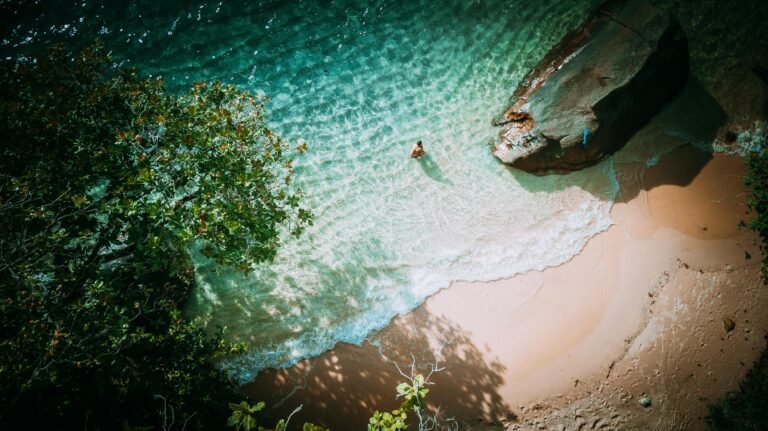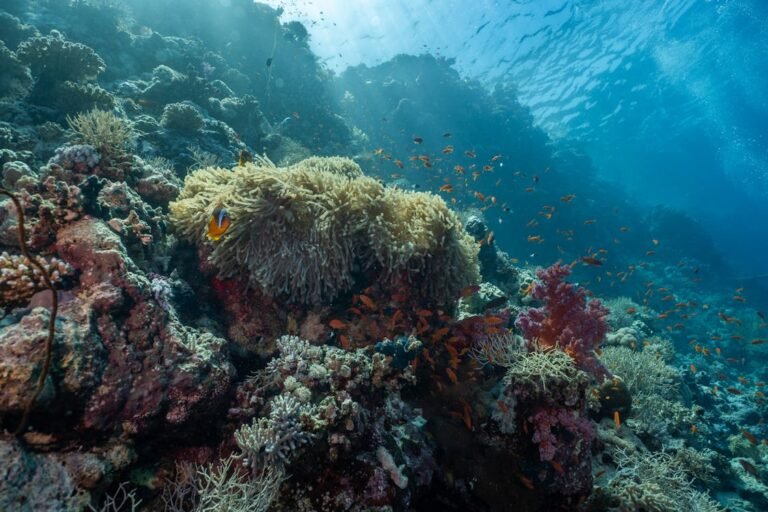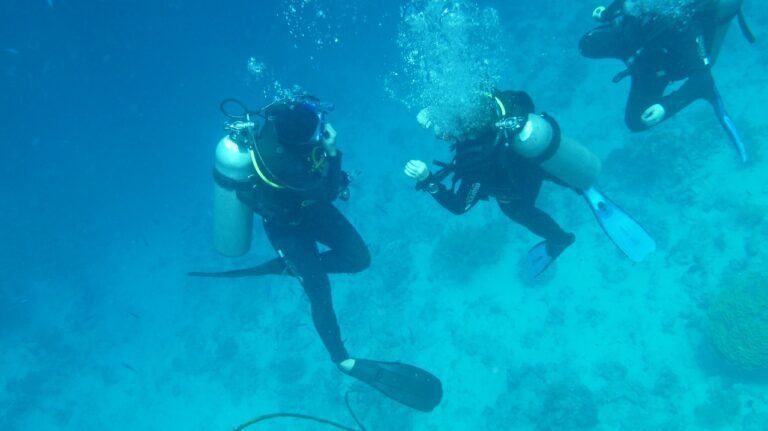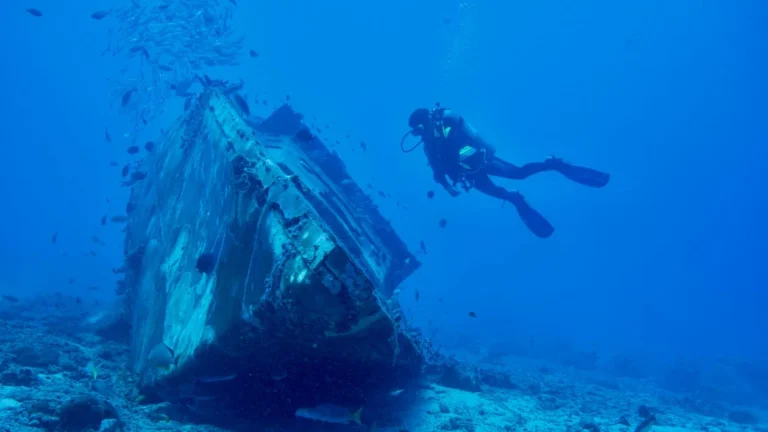Different Scuba Diving Certifications Explained
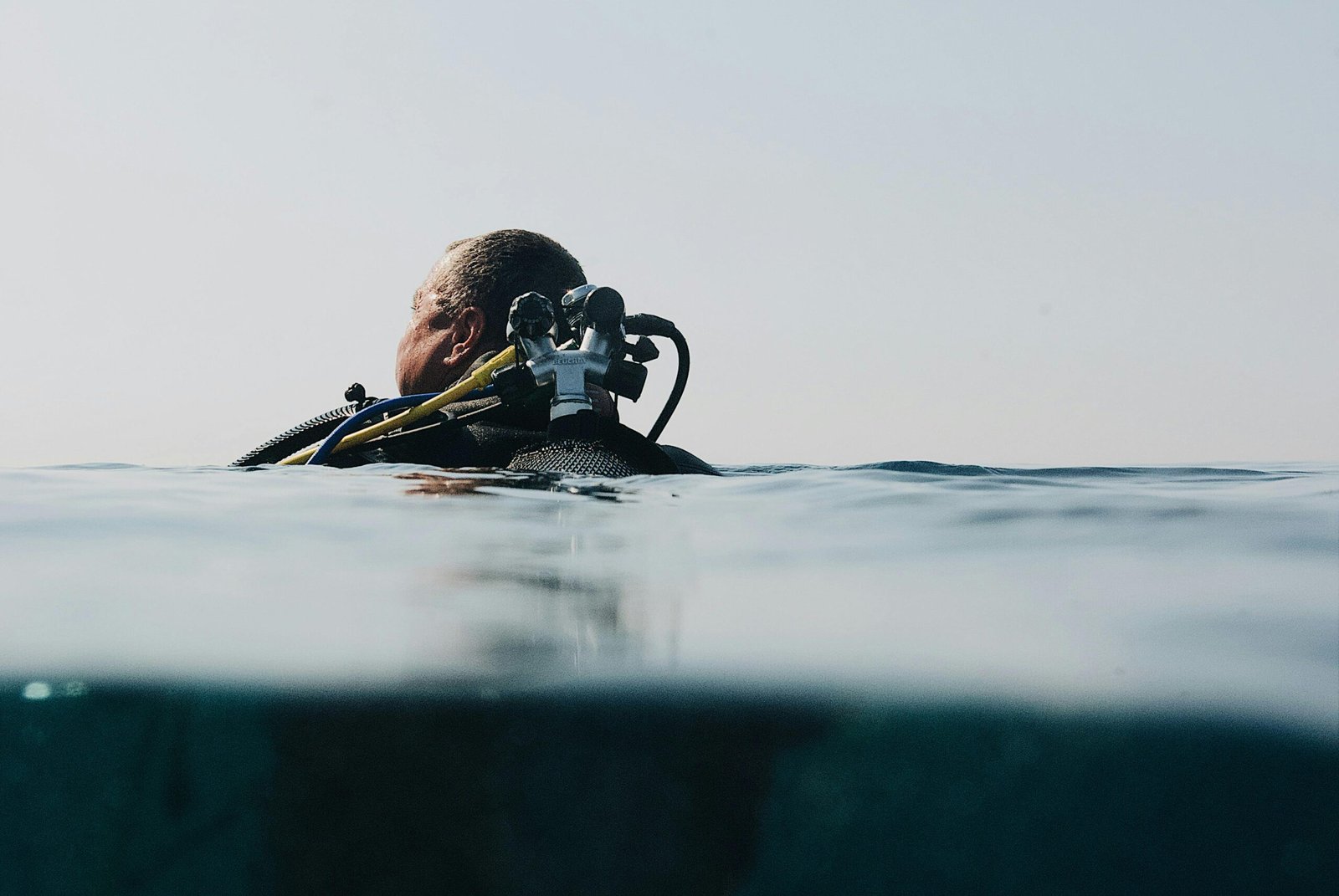
Scuba diving certifications aren’t just fancy pieces of paper—they’re proof that you’ve got the training, skills, and safety know-how to dive confidently. But with so many options out there, how do you know which one to pick?
In this guide, I’ll walk you through the different types of scuba diving certifications, what they mean, and how to choose the best one for your goals. Whether you’re just starting out or you’re ready to turn your passion for diving into a career, there’s something here for everyone. So, let’s dive in and get started!
What Are Scuba Diving Certifications and Why Do You Need Them?
Scuba diving is an incredible adventure, but it’s not something you can just dive into without the proper training. That’s where scuba diving certifications come in.
These certifications are like a passport for exploring the underwater world, showing that you’ve learned the skills and safety measures needed to dive responsibly.
What Are Scuba Diving Certifications?
Scuba diving certifications are official credentials that prove you’ve completed a training course for diving. They’re issued by diving organizations like PADI, SSI, NAUI, or CMAS. Each certification focuses on teaching you important things like how to use your gear, communicate underwater, and handle emergencies.
Think of it as your ticket to explore safely. Without it, most dive shops won’t let you rent gear or join dives because they can’t be sure you’re trained.
Why Are Certifications Important?
There’s a reason why scuba diving certifications exist: diving can be dangerous if you don’t know what you’re doing. The ocean is an unpredictable place, and a lack of knowledge or preparation could lead to accidents.
Certifications ensure that every diver knows how to:
- Manage their equipment properly.
- Understand the effects of pressure underwater.
- Navigate and communicate during dives.
- Handle emergencies like running low on air or helping a buddy in trouble.
Not only do certifications make diving safer, but they also make it more enjoyable. When you’re confident in your skills, you can focus on the magic of the underwater world instead of worrying about what could go wrong.
How Do Certifications Make Diving Globally Accessible?
Scuba diving certifications are recognized around the world. This means you can train in one country and dive almost anywhere else!
For example, a PADI Open Water certification earned in Australia will let you join dives in the Maldives, Mexico, or even Iceland. It’s a truly global community, and your certification is your key to unlocking it.
In short, scuba diving certifications are about more than just ticking a box—they’re about ensuring every dive is safe, fun, and unforgettable.
Overview of the Main Scuba Diving Organizations

When it comes to scuba diving certifications, not all organizations are created equal. Different agencies have their own unique approaches to training, but all aim to make you a skilled and confident diver.
Let’s take a closer look at the major players in the scuba diving world and what makes each one stand out.
PADI (Professional Association of Diving Instructors)
PADI is the world’s largest and most recognized scuba diving organization. If you’re new to diving, chances are you’ve heard of PADI certifications. Their courses are designed to be accessible, beginner-friendly, and widely accepted around the globe.
Why Choose PADI?
- Global Recognition: PADI certifications are accepted at almost every dive center worldwide.
- Diverse Courses: They offer everything from entry-level Open Water Diver courses to professional Dive Instructor training.
- User-Friendly Materials: PADI emphasizes clear, easy-to-follow learning materials, including online and in-person options.
SSI (Scuba Schools International)
SSI is another popular organization, known for its flexibility and innovative training approach. They make great use of digital learning, allowing students to complete much of the theory portion online before heading to the water.
Why Choose SSI?
- Digital Learning: SSI provides an app with interactive materials, quizzes, and videos, making learning convenient and flexible.
- Personalized Training: SSI instructors tailor the training to suit your individual progress.
- Global Reach: SSI certifications are also accepted worldwide, similar to PADI.
NAUI (National Association of Underwater Instructors)
NAUI takes a more in-depth approach to training, ensuring that divers receive comprehensive education. This organization is well-known for its focus on safety and thorough understanding of diving concepts.
Why Choose NAUI?
- Comprehensive Curriculum: Their training often goes beyond the minimum standards, making it ideal for divers who want a deeper understanding.
- Emphasis on Safety: NAUI courses stress risk management and emergency preparedness.
- Professional Pathways: NAUI is highly regarded in the professional diving community.
CMAS (Confédération Mondiale des Activités Subaquatiques)
CMAS is a global organization with a long history, often viewed as the “gold standard” for international dive certifications. Their focus is on unifying diving standards across countries.
Why Choose CMAS?
- International Standards: CMAS promotes a consistent training framework worldwide.
- Broad Coverage: It’s particularly popular in Europe and parts of Asia.
- Skill-Focused: CMAS courses emphasize mastering practical skills and dive theory.
Which Organization Is Best for You?
Each organization offers high-quality training, so the choice often depends on your goals, location, and personal preferences. If you’re looking for global recognition, PADI or SSI might be your best bet.
Different Scuba Diving Certifications Explained

Scuba diving certifications aren’t one-size-fits-all. They’re designed to match different skill levels, interests, and goals. Whether you’re a complete beginner or dreaming of a professional diving career, there’s a certification tailored just for you.
Let’s break them down by category.
Beginner Certifications
Open Water Diver (PADI, SSI)
This is the most popular entry-level certification for new divers. It teaches the fundamentals of scuba diving, including how to use equipment, manage buoyancy, and stay safe underwater.
Key Details:
- Depth Limit: Up to 60 feet (18 meters).
- Requirements: Typically, you need to be at least 10 years old and in good health.
- Duration: 3–5 days, combining theory, pool sessions, and open-water dives.
Scuba Diver Certification
A shorter, less comprehensive version of the Open Water course, this certification is perfect for those with limited time or interest in diving beyond shallow depths.
Key Details:
- Depth Limit: Up to 40 feet (12 meters).
- Requirements: Similar to Open Water, but with fewer dives required.
- Upgrade Option: You can later complete the full Open Water Diver course if you want more freedom.
Intermediate Certifications
Advanced Open Water Diver
Ready to explore deeper waters or try new diving activities? The Advanced Open Water certification is a natural next step. It’s less about classroom learning and more about gaining experience in different types of dives.
Key Details:
- Depth Limit: Up to 100 feet (30 meters).
- Specialty Dives: Includes five dives, such as deep diving, underwater navigation, and optional specialties like night diving or wreck diving.
- Duration: Usually 2–3 days.
Rescue Diver Certification
This certification focuses on safety and teaching you how to handle emergencies, both for yourself and your dive buddy. It’s an excellent way to build confidence and become a more responsible diver.
Key Details:
- Skills Covered: Emergency response, assisting panicked divers, and handling underwater problems.
- Requirements: You need an Advanced Open Water certification and CPR training.
- Duration: Around 2–3 days of intensive training.
Specialty Certifications
Underwater Photography and Videography
Capture stunning images of marine life and underwater landscapes.
Wreck Diving
- Explore sunken ships, planes, and other structures while learning how to navigate safely in tight spaces.
Night Diving
- Experience the underwater world in a completely different light—literally—with night-time dives.
Ice Diving
- For adventurous divers, this certification involves diving beneath frozen surfaces in extreme conditions.
Deep Diving
- Dive beyond the standard recreational limits and learn how to manage the unique challenges of deeper waters.
Professional Certifications
Dive Master
This certification is the first step to becoming a dive professional. It allows you to assist instructors, lead dives, and even work at dive centers around the world.
Key Details:
- Requirements: Rescue Diver certification and a certain number of logged dives.
- Focus: Leadership skills, dive planning, and group management.
Scuba Diving Instructor
If you want to teach scuba diving and inspire others to explore the underwater world, this is the certification for you.
Key Details:
- Requirements: Dive Master certification and additional instructor training.
- Opportunities: You can teach courses, certify new divers, and lead training sessions.
No matter where you are in your diving journey, there’s always a new certification to help you grow and explore.
How to Choose the Right Scuba Diving Certification

With so many options, picking the right scuba diving certification can feel overwhelming. But don’t worry—it all comes down to understanding your goals, preferences, and what each certification offers.
Here’s a step-by-step guide to help you make the best decision.
1. Define Your Diving Goals
Ask yourself what you want to achieve with scuba diving. Are you:
- Diving for Fun? If you’re interested in exploring the ocean on vacations or as a hobby, beginner certifications like Open Water Diver or Scuba Diver are great starting points.
- Looking to Build Skills? If you’re aiming to dive deeper, handle emergencies, or try specific types of diving (like night or wreck diving), intermediate or specialty certifications will help you level up.
- Considering a Career in Diving? If you dream of working in the diving industry, professional certifications like Dive Master or Scuba Diving Instructor are a must.
2. Consider the Location and Accessibility of Dive Centers
Not all dive centers offer every type of certification. Check which organizations operate near you or at your preferred dive destinations. For example:
- PADI and SSI centers are widespread and often easier to find.
- NAUI or CMAS might require specific travel, depending on your location.
Pro tip: If you’re planning a vacation, see if you can combine your trip with training at a dive-friendly destination like Thailand, Mexico, or Egypt.
3. Think About Costs and Time Commitment
Diving certifications vary in price and duration. Here’s a quick breakdown:
- Beginner certifications (e.g., Open Water Diver): $300–$500 and 3–5 days.
- Intermediate certifications (e.g., Advanced Open Water): $200–$400 and 2–3 days.
- Specialty certifications: Varies widely based on the course, typically $100–$300 each.
- Professional certifications (e.g., Dive Master): Higher costs and longer durations, often several weeks.
Make sure to factor in equipment rental fees, travel costs, and any extras like textbooks or digital materials.
4. Evaluate Future Progression Opportunities
If you think you’ll want to advance your skills or career later, consider the progression pathways each organization offers.
For example:
- PADI has a clearly structured system that makes it easy to move from beginner to professional levels.
- SSI offers flexibility with digital learning and a broad range of specialty certifications.
- NAUI’s detailed courses prepare you well for advanced and professional diving.
5. Trust Your Gut and Enjoy the Journey
At the end of the day, certifications are about helping you enjoy the ocean safely and confidently. Choose a course that feels right for you, fits your lifestyle, and gets you excited about diving.
Frequently Asked Questions About
Scuba Diving Certifications
Scuba diving certifications come with a lot of details, and it’s natural to have questions.
Here are some of the most common ones, answered simply to help you feel confident as you plan your diving journey.
Conclusion
Whether you’re a beginner ready to take your first underwater breath, an intermediate diver looking to refine your skills, or someone dreaming of a professional career in diving, there’s a certification tailored just for you.
The ocean is vast, mysterious, and full of wonders waiting to be explored. With the proper training, you can dive with confidence, knowing that you’re prepared for the challenges and joys that come with every dive.
So, what are you waiting for? Take the plunge, start your scuba certification journey, and open the door to incredible underwater experiences. The ocean is calling—and it’s time to answer.
